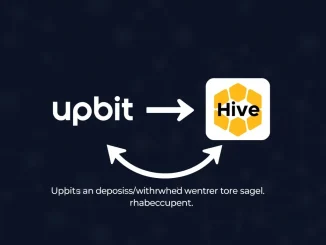
geopolitical tensions often intersect with the digital frontier, and the world of cryptocurrency is no exception. A major topic set for discussion among G7 leaders at their upcoming summit in Alberta, Canada, in mid-June is the escalating threat posed by North Korea’s extensive involvement in crypto hacking and cryptocurrency theft. This isn’t just about digital crime; it’s about national security and global financial stability.
Why is North Korea’s Crypto Hacking a G7 Priority?
North Korea has become notoriously proficient at cybercrime, particularly targeting cryptocurrency exchanges and decentralized finance (DeFi) platforms. These activities are not random acts of crime but a state-sponsored strategy to bypass international sanctions and fund illicit programs, including weapons of mass destruction.
Here’s why this issue demands high-level attention:
- Scale of Theft: Reports from cybersecurity firms and the UN consistently highlight North Korea’s responsibility for massive cryptocurrency theft, amounting to hundreds of millions, sometimes billions, of dollars annually.
- Funding Illicit Programs: The stolen funds are laundered and converted into fiat currency, providing a crucial financial lifeline for the regime, enabling it to continue developing its nuclear and missile programs despite stringent sanctions.
- Erosion of Trust: Such large-scale hacking undermines trust in the cryptocurrency ecosystem and poses significant risks to exchanges, businesses, and individual investors worldwide.
- Complexity of Tracing: While blockchain provides a public ledger, tracing and recovering stolen funds, especially after sophisticated laundering techniques, remains a significant challenge.
What Will the G7 Discuss Regarding Illicit Finance?
The G7 nations (Canada, France, Germany, Italy, Japan, the United Kingdom, and the United States) represent some of the world’s largest economies and have a vested interest in maintaining global financial security. Their discussion will likely focus on strengthening international cooperation to block illicit finance channels that utilize cryptocurrencies.
Key areas of focus are expected to include:
- Enhanced Information Sharing: Improving the speed and effectiveness of sharing intelligence on North Korean hacking tactics, techniques, and procedures (TTPs) among member states and with international bodies.
- Coordinated Sanctions Enforcement: Working together to ensure sanctions related to cryptocurrency activities are effectively implemented and enforced across jurisdictions.
- Technical Solutions: Exploring collaborative efforts on developing and deploying technologies to better trace stolen crypto assets and disrupt laundering networks.
- Engaging the Crypto Industry: Discussing ways to work with cryptocurrency exchanges, wallet providers, and other industry participants to enhance security measures and compliance with anti-money laundering (AML) and counter-financing of terrorism (CFT) regulations.
- Capacity Building: Assisting countries less equipped to combat sophisticated cybercrime and illicit finance operations.
Addressing the Challenge: Can International Cooperation Curb Cryptocurrency Theft?
Curbing North Korea’s cryptocurrency theft operations is a complex undertaking. The decentralized nature of some crypto platforms and the speed at which funds can be moved and laundered present significant hurdles. However, increased international cooperation is seen as essential.
Past successes in tracking and sometimes recovering stolen funds have often been the result of coordinated efforts between law enforcement agencies in different countries, working alongside blockchain analytics firms and compliant crypto businesses. The G7’s focus aims to elevate this cooperation to a strategic level, ensuring a united front against state-sponsored cybercrime and the use of cryptocurrencies for illicit finance.
For the cryptocurrency community, this G7 discussion underscores the ongoing need for robust security practices, strict adherence to regulatory requirements (like KYC/AML), and vigilance against potential exploits. While cryptocurrency offers numerous benefits, its misuse by malicious actors like North Korea highlights the critical importance of a secure and compliant ecosystem.
Conclusion: A United Front Against a Growing Threat
The inclusion of North Korea’s crypto hacking activities on the G7 summit agenda signals the severity with which leading global powers view this threat. By prioritizing strengthened international cooperation, the G7 aims to build a more resilient global financial system and disrupt the flow of funds enabling North Korea’s dangerous ambitions. This focus on illicit finance within the crypto space is a stark reminder that the evolution of digital assets goes hand-in-hand with the need for robust security measures and global collaboration to combat criminal and state-sponsored misuse.



